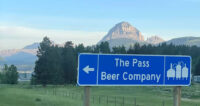Author shares stories from Women of the Pandemic
By Lethbridge Herald on May 20, 2021.
The Lethbridge Public Library and Social Health Equity Network of Lethbridge and Area (SHENLA) through the Library’s Community Connections Speaker Series, hosted Lauren McKeon to discuss her book Women of the Pandemic last Thursday.
McKeon is an editor at the Walrus and is also the author of the books F Bomb: Dispatches on the War on Feminism and No More Nice Girls. Her writing has appeared on CBC, Toronto Life, Hazlitt and Chatelaine.Â
Through intimate portraits of Canadian women in diverse situations and fields, Women of the Pandemic is a gripping narrative record of the early months of COVID-19, a clear-eyed look at women’s struggles, which highlights their creativity, perseverance, and resilience as they charted a new path forward during impossible times (from publisher McClelland & Stewart).
McKeon spoke to over 50 women from all kinds of backgrounds and occupations, to bring a compilation of stories from the frontlines of COVID-19.
During her presentation on Thursday, McKeon shared a portion of one story that stood out among the others. This particular story resonated with her, as it is about a 26-year-old female long-haul trucker, something that is not usually associated with women.
“Nicole didn’t dare go home in March 2020, her mom had diabetes and her dad was older edging the high-risk line of COVID-19. She didn’t want to give the virus to her sister or young niece either. Even though she felt fine and didn’t know a single person who was sick, the 26-year-old did what many other long-haul truckers were doing, whenever she got back from a trip, she steered her red and white freightliner Cascadia into the company’s yard, parked the truck and called it home sweet home.…It was after a pick-up in Chicago to get medical supplies including gloves, masks, gowns and hand sanitizer, that Nicole started to feel unwell. She continued to drive down to South Carolina playing a denial game the whole time, it’s probably just a cold she told herself. It was April 7 and Chicago had been in the news as an emerging COVID-19 hotspot and even as she tried to tell herself not to worry, that thought stuck in her head.
“… She parked her truck and curled up in the bed located behind her seat, she drifted in and out strange, fevered dreams hunting peacefulness rest. In the morning she bought a thermometer, her fever had hit 39.3 degrees Celsius. She drove through it, because what else could she do. She couldn’t abandon her truck, she couldn’t abandon her load, she couldn’t check into a hotel and spread the virus. Even if there were room to park the Freightliner at her stop in South Carolina, she stayed inside the cabin until everybody was gone. Don’t touch anything she told them and sick she felt like hell.
Writing this book was difficult for McKeon. Interviewing women about their struggles while still being in the middle of the pandemic, not knowing when it was going to end made it challenging.
“It’s tough, because we’re trying to talk to people and ask them to reflect on the time and how they felt, ask them to share their most difficult times that many of them are based in their lives. A lot of people that I spoke to just broke down crying, because it has been such a traumatic time for so many people,” shared McKeon.
For McKeon it was an incredible privilege to have people be so generous with their time, but it was also difficult to hear those stories.
“We kind of had this myth that the pandemic could be the great equalizer, or you know that was the narrative that we heard at the beginning. And I think we very quickly learned that wasn’t the case. So many people have not experienced the pandemic equally and if anything it only exposed the inequities and I think particularly for women, we need to remember,” added McKeon.
Many issues that women face have been brought up in her book. From affordable childcare, to inequality in the work force. Many women experienced the pandemic more personally, since they were the ones having to balance working from home while running their household and home-schooling their children, according to many of the stories shared in Women of the Pandemic.
Follow @DWoodardHerald on Twitter
-1




